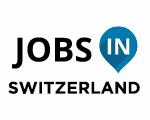The European Union uses a common system for the recognition of diplomas across its member states. The content and duration of the training must be comparable for a diploma from one country to be recognized as equivalent in another. Switzerland has adopted this system.
For some professions (such as medical professions and architects), recognition of qualifications is virtually automatic. In other cases, the Swiss authorities may compare training and professional experience with its requirements and, in some circumstances, refuse to recognize diplomas as being equivalent.
The first thing to do is to find out whether or not the profession that you want to practice is regulated in Switzerland. Professions are considered to be regulated if practicing them is dependent on a diploma, certificate or other formal qualifications. If a profession is not regulated, there is no need to check the equivalences of qualifications - a work permit is sufficient. For example, anyone can work as an office clerk or baker in Switzerland. In these cases, the employer decides how to judge applications from individuals with different qualifications. Depending on what positions you are applying for, you might find it helps potential employers if you explain you qualifications or note a Swiss equivalent in your CV.
First point of contact for EU citizens
The first point of contact for applicants from EU/EFTA countries in Switzerland is the National Contact Office in the Federal Office for Professional Education and Technology. It provides information on the regulated professions affected by the agreement and refers people to the authorization authorities.
The system of diploma recognition in the EU (Switzerland/EU/EFTA countries) is based on three types of directive:
- Sector directives : Medical and paramedical professions and architects.
- General directives : Mainly professions requiring a university education or apprenticeship.
- Transitional directives : Mainly professions in industry, trade, commerce, the service industry and crafts.
Automatic recognition of diplomas
There are sector directives guaranteeing ‘automatic recognition’ of diplomas for seven professions: doctors, dentists, veterinary surgeons, pharmacists, nursing staff in general care, midwives and architects.Automatic recognition, however, only refers to basic training. Even if recognition is more or less guaranteed, applicants wishing to practice one of the seven regulated professions in Switzerland must apply for authorization and submit their diplomas to prove that these are entitled to automatic recognition.
Checklist for applications
The National Contact Office in the Federal Office for Professional Education and Technology will refer you the authority in charge of determining the equivalence of your diploma.
For your application, you should have all important papers translated into one of the national languages or Switzerland, in some cases these translations may need to be notarized.Only submit copies of originals, never the originals themselves. Even though the exact requirements depend on your profession and types of qualification, you will probably need some or all of the following documents:
- application form – correctly and fully completed
- copy of passport or ID card
- diploma
- proof of professional experience
- a character reference, health certificate, certificate of good conduct
- proof of solvency


